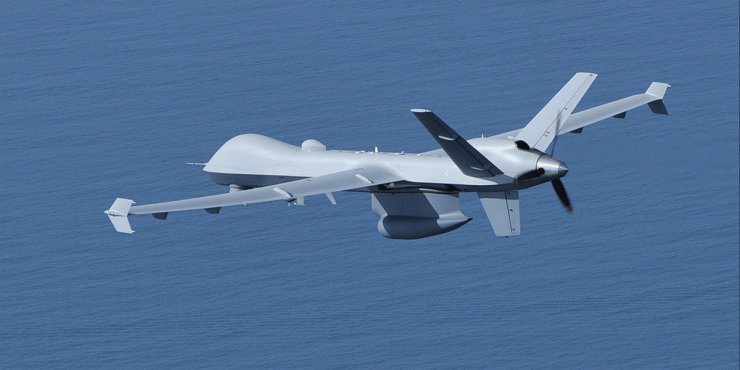General Atomics Aeronautical Systems is working with the Hellenic Air Force (HAF) in Greece to conduct a series of demonstration flights for European countries in December. The US manufacturer will fly Remotely Piloted Aircraft (RPA) based out of the HAF’s site in Larissa using GA-ASI MQ-9 Guardian RPA to showcase maritime surveillance capabilities, as well as a GA-ASI-developed Detect and Avoid (DAA) system that enables RPA to fly safely in civil airspace alongside manned aircraft.
The demonstration configuration is based on the MQ-9 systems operated by the US Department of Homeland Security (DHS), in support of its maritime surveillance roles.
The DAA system consists of an air-to-air radar and processor integrated with Traffic Alert and Collision Avoidance System (TCAS II) and Automatic Dependent Surveillance-Broadcast (ADS-B). The DAA system from GA-ASI is operational in the US. The system’s collision-avoidance radar provides an essential safety feature for integrating unmanned aircraft into civil airspace.
The MQ-9 system will also demonstrate a multi-mode maritime surface-search radar with Inverse Synthetic Aperture Radar (ISAR) mode, an Automatic Identification System (AIS) receiver, and High-Definition/Full-Motion Video sensor equipped with optical and infrared cameras. This sensor suite enables real-time detection and identification of surface vessels over thousands of square nautical miles. The Raytheon SeaVue surface-search radar system provides automatic tracking of maritime targets and correlation of AIS transmitters with radar detection.
GA-ASI is also partnering with satellite communications (SATCOM) operator and managed services provider SES, with over 70 satellites in Geostationary Orbit (GEO) and Medium Earth Orbit (MEO). SES will provide the GEO satellite connectivity that enables the MQ-9 to operate securely with a high capacity datalink, enabling real-time transmission of sensor data from the aircraft, and extending its effective operational range beyond line-of-sight datalinks.
(Image: GA-ASI)
For more information visit:




